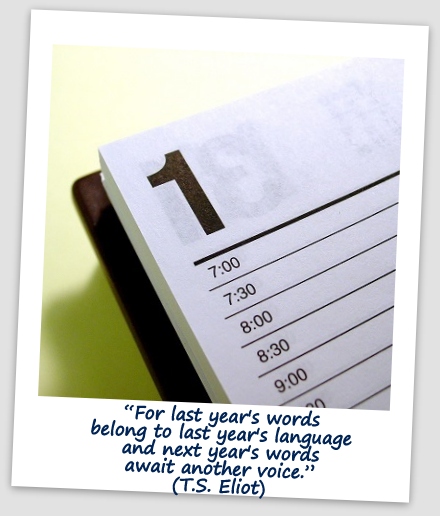Coaching Quote of the Day 20th June 2015

“It is the still, small voice that the soul heeds, not the deafening blasts of doom.”
(William Dean Howells)

“It is the still, small voice that the soul heeds, not the deafening blasts of doom.”
(William Dean Howells)

“For last year’s words belong to last year’s language and next year’s words await another voice.”
(T.S. Eliot)
In today’s guest post coach Gail Gaspar shares her experience and knowledge as she shares the message:

By Certified Career Coach Gail Gaspar MA, ACC
Your unique voice is a gift to the world. Your voice does not need to be fixed, squeezed or formatted into an acceptable template according to the standards of others.
We learn early on to take our cues from society and others. Negative self-talk and limiting beliefs are tethered to our perceptions about what will others think. If we continue to cue up unconsciously and hand our voice over to others, we lose our ability to trust ourselves. We must trust ourselves before others can trust us.
Let’s begin with some backstory. I got my first and last chance to be a singer in a rock and roll band when I was 16 years old. Much to our delight, my two best friends and I were invited to band practice in the guitar player’s basement. My friends jumped at the chance to sing with the band. Like any self-conscious teenage girl worth her bell-bottoms, I hung back, quite relieved to sit this one out.
When the song was over, one of the band members turned to me. How about YOU? Let’s hear YOU sing. Picture me resisting, shrinking, embarrassed by unwanted attention. They literally had to pull me up to the microphone to sing Stairway to Heaven by Led Zeppelin. For the record, it clocks at 8:02 minutes. When the song was over, the band members made a fuss about my voice and did not mention my friends’ duet. My friends were mad. They did not speak to me the entire ride home.
I apologized to my friends. It was not the last time I did not OWN the sound of my own voice.
One of the band members showed up at my house the following day to ask my parents if I could join the band as a singer. My parents were not at all agreeable. They forbid me to sing with the band. No daughter of theirs was going to be a singer in a rock n roll band, and all that. Of course I was furious with my parents. But more than anything, I felt the wrath of my friends. My voice had landed me in an enviable position, and I did not want to lose my friends.
This circumstance fueled a powerful story I carried around for years. My ability to shine would have adverse consequences. And so, for a time, I dulled my shine and squashed my voice.
Do you trust the truth of your voice? Where are you voicing what others want or expect to hear? Is your voice story supportive for you?
In my line of work as a Career Coach, the ONE thing that stops more people from acting on more dreams is the refrain, “What will OTHERS think?”
I see it going on all around me. Recently, I met a lovely woman who was an opera singer. She confided to me, I’d like to audition for a solo. I’m good enough and yet stay in my comfort zone singing as part of the ensemble. The truth is, she said, I don’t trust the sound of my own voice.
When our consideration is primarily externally focused, the result is a tempered, vanilla voice that does not sing true or support us in doing what we want to do in the world.
Intellectually, we may know it is best not to feel needy, attached to outcomes or what others think of us. But sometimes, as you also probably well know, it’s hard!
So how do you stop yourself from being driven primarily by external expectations and tune in to your inner voice?
Lose your mind. Get physical and check in with your body to discover what’s true.
Let go of the need for perfection and struggle. Your true voice is best coaxed from non-attachment to outcome, willingness to make mistakes and belief that voicing your truth trumps it all.
Give yourself permission to honor what YOU want. More free writing? Play time? Sitting still each afternoon for a cup of tea? Whatever it is, recognize and create space to honor what’s true for you.
Cultivate faith and trust. Even though you can’t see what’s ahead, you have something important to say and the world needs your gifts. If you hide or hoard your gifts, you are depriving others who need to hear what you have to say.
Go big or go home. Shake things up. Question the way things are. Take more risks. Say it proud. Everyone doesn’t have to like what you say. Those who can and need to, will hear you.
Led Zeppelin did not know when they were composing Stairway to Heaven that it would become one of the greatest rock songs of all time. They put their voices out in the world.
Allowing your inner voice to drive the action will result in rewarding opportunities. The good news is you can create a new voice story at any time and from wherever you are. You never know who your voice will touch, how your authentic voice will carry forward. Until you try.
Do you tend to heed or ignore your inner voice? What is your voice story? How is it serving you? Is it time to take action on your story? We all benefit when you share your voice to comment below.
Gail helps women entrepreneurs activate powerful truth, awareness and intention for more impact, freedom and fun.
If you like this article, you’ll LOVE my newsletter! For resources and inspiration you can use to Transform your Career Reinvention, visit http://www.iDecideCoach.com to sign up for my monthly newsletter.
Connect and Share!
Subscribe to iDecide Coach RSS feed
Connect with Gail on LinkedIn, google+ and colorPinterest
Article Source: Why You MUST Stop Squashing Your Voice
“If you hear a voice within you say “you cannot paint,” then by all means paint, and that voice will be silenced.”
(Vincent Van Gogh)
In this week’s guest post, coach Beverley Ireland-Symonds shares some of her thoughts about communication skills and coaching.
By Beverley Ireland-Symonds
When you start training as a coach one of the first things you learn is the importance of having effective communication skills to ensure the success of the coach/client relationship.
No one starts training as a coach unless they’re interested in helping people. However, it often comes as a surprise to trainee coaches that their communication skills aren’t quite as good as they thought they were.
There are 4 main reasons for this.
Of course as soon as you start training some of these things start to become very obvious indeed. You’re taught how to build rapport, use active listening skills, mirror client’s body language, vary tone and pace as appropriate and learn the value of silence, as well as many other things.
I remember I had to work hard to change some of my non-verbal communication skills. I’d spent a lot of my working life using BSL (British Sign Language ) and Makaton (signing system) and consequently used my hands a lot when I was talking. Of course this was fine in the context of which I had used those skills, but not good when I was coaching someone.
However, it wasn’t as easy as I thought to just stop using my hands excessively. It took me about three months to stop altogether, though for sometimes afterwards, I suffered an occasional lapse in concentration and would move them unnecessarily. It’s something that I am still very conscious of and regularly review.
Not using my hands was one small area of non-verbal communication skills I had to improve on, but of course there were many others. Even though I came from a communication background and had spent many years teaching and training different aspects of written, verbal and non-verbal communication, training as an NLP Coach certainly helped to hone my skills.
However, one of the things that I was unprepared for when I started to work regularly with clients was the quite different challenges of communicating effectively using Sykpe or the phone rather than face to face.
So many of our interactions in life and our understanding of them depend on what we see, not just what we hear. So just like someone who is blind or partially sighted when you coach over the phone you have to develop stronger skills in our other senses. In this case it is our listening and oral skills that have to become even more finely tuned.
The use of silence: It can often be more difficult to understand why a client is silent when you can’t see them. It could be they’re distressed, they’re thinking, they didn’t understand, they’re annoyed, they’re distracted. You don’t have any of those visual clues that you have when you’re face to face and it can be even harder to anticipate if and when you should interject.
The client’s voice: Voices always give away a lot of different clues. It’s often easy to pick up by the tone or pitch of the voice and how the client is feeling, including whether or not they’re smiling. What you do miss out on when you can’t see them is whether the rest of their body language is in tandem with what they’re saying. Face to face we’ve all seen a client say they really do want to do something, whilst giving themselves away by shifting their eyes or shaking their heads at the same time.
The coaches voice: The flip side to not being able to see the client and therefore you need to listen even more carefully to what is being said, is that the client can’t see you and therefore you need to be even more aware of your own, tone pitch and pace. Many people are unaware of how differently they sound over the phone. When people can’t see each other, they can struggle to pick up what’s being said, particularly if you speak quickly. Obviously you’re not able to mirror any of the client’s body language but you can mirror their tone and pace to build rapport.
Staying focussed. As a coach our client would expect us to stay in the now. I’m not suggesting that it’s any more difficult on the phone or Skype to stay focussed entirely on the client for 45 minutes or longer, than it is when you’re face to face, but it is a different experience and again with visual clues missing it is the listening skills that take on even greater importance.
Whether coaching face to face or over the phone or Skype, I don’t believe one is easier than the other, they are just different, and whether you choose to exclusively use one or the other or do a combination of them both, the most important thing to remember is that you’re communication needs to be effective for a successful client/coach relationship.
1. I always review my coaching sessions, including a specific section where I evaluate specific areas of communication and make notes of what I might do differently or need to improve on.
2. I occasionally run a survey with my clients (using survey monkey) where they answer some questions anonymously about my communication style. This not only keeps me on my toes, but has made me make specific changes to my practice.
3. At set intervals during a group of coaching sessions, I ask the client whether they think the way we’re communicating with each other is effective or if there is anything they’d like me to do differently.(I always remain aware though that some might tell me what they think I want them to say, rather than what they think)
The reason why I adopt this approach is because I always keep in mind this famous quote from George Bernard Shaw
“The single biggest problem in communication is the illusion that it has taken place”
I have this quote above my desk in my office and always thought about it when I was a senior manager is a different working environment. However, it’s just important to me as a coach. Yes, I can assume a lot about how effective I am as a communicator as my clients achieve and/or exceed their goals, but I never want to become complacent about it. Communication is too important for that.
How often to you check the effectiveness of your communication skills?
About the Author/Further Resources
Beverley Ireland-Symonds has worked in different fields including the NHS, travel and tourism, fashion, as well 16 years in adult and further education. As a qualified NLP Coach and Certified Practitioner, she works with clients to improve their confidence and image and has developed an online coaching programme for people returning to work after a break. She also runs a training and consultancy company specialising in communication skills and language development. You can follow her on Twitter and LinkedIn
“That voice inside your head is not the voice of God. It just sounds like it thinks it is”